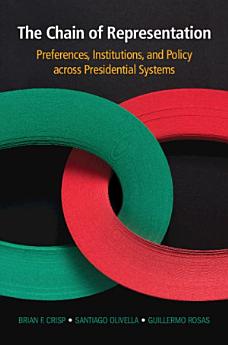The Chain of Representation: Preferences, Institutions, and Policy across Presidential Systems
About this ebook
About the author
Brian F. Crisp is a Professor of Political Science at Washington University, St Louis. His work on electoral systems, legislative politics, interbranch relations, and policy choices has been published in The American Journal of Political Science, The American Political Science Review, and The Journal of Politics. He is also the Executive Editor of Legislative Studies Quarterly.
Santiago Olivella is an Assistant Professor of Political Science at the University of North Carolina, Chapel Hill. His research focuses on developing quantitative tools to study issues in electoral and legislative politics. He has published articles in Political Analysis, the American Journal of Political Science, the British Journal of Political Science, the Journal of Politics, and Electoral Studies.
Guillermo Rosas is an Associate Professor of Political Science at Washington University, St Louis. His research explores the economic consequences of political regimes and political elite behavior. He is the author of Curbing Bailouts: Bank Crises and Democratic Accountability in Comparative Perspective (2010) and co-author of Latin American Party Systems (Cambridge, 2010).




